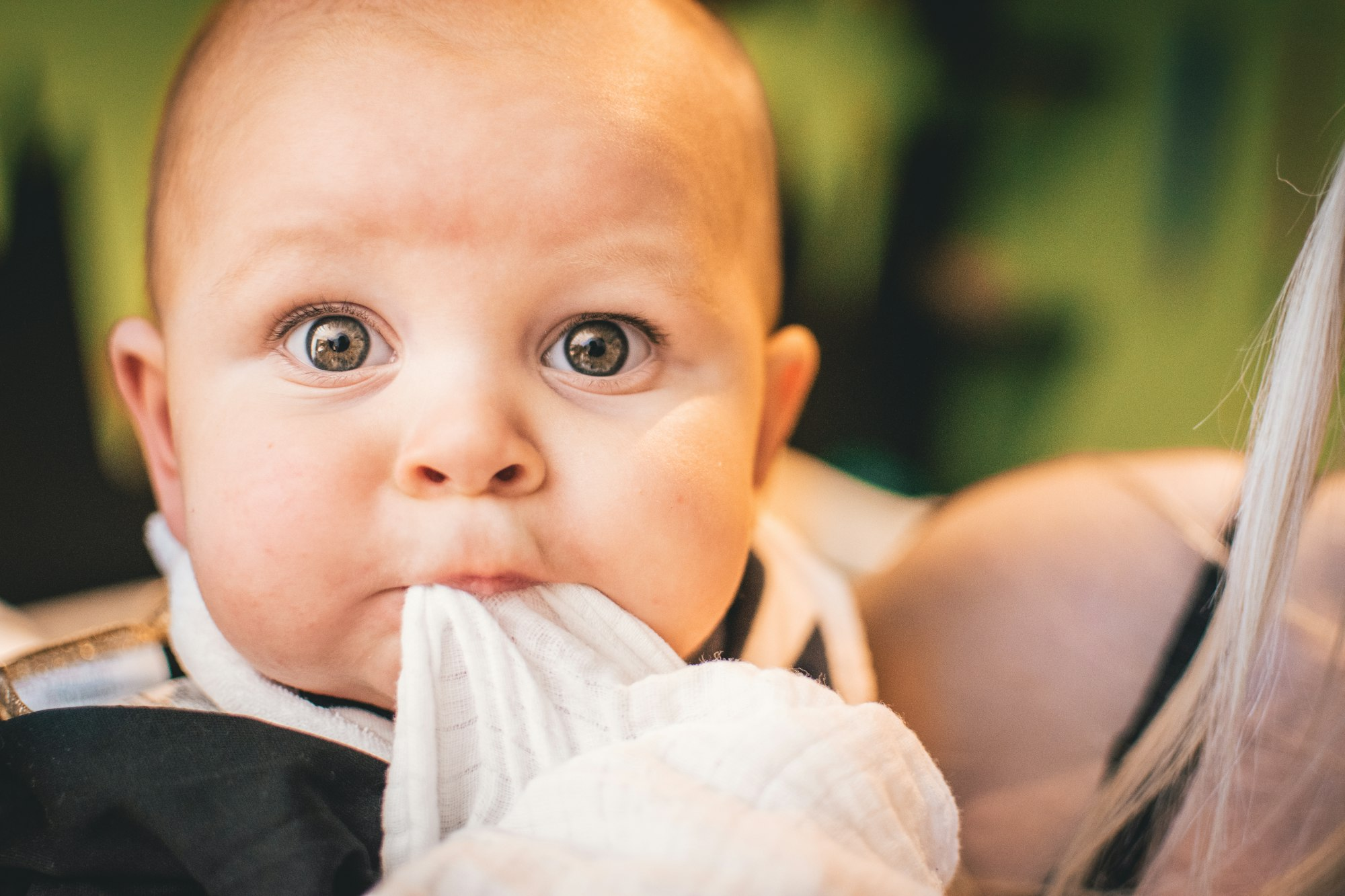If you’re a mother grappling with the dilemma of teething and biting while breastfeeding, you’re not alone. In this article, I’ll share my personal journey of navigating this tricky phase, along with practical tips and solutions that helped us make it through.
How to Prevent Biting
I remember when my baby started teething. Those fussy evenings were so painful for both of us. My baby frequently bit me, and I have to be honest, I did consider weaning early…a few times. Babies usually teethe anywhere between 5 months and two years. For us, it started around the 5-month mark.
I knew from all the previous research I had done about teething that I needed to stick it out. Fortunately, I was persistent, and I managed to make it to the two-year mark. I’m so pleased I did because now I can see how much breastfeeding for that extended time benefited us. I hope that this article will somehow encourage other moms who are dealing with the same issue.

Things That Helped Us
- I found the best way to relieve my baby’s teething pain and prevent biting while breastfeeding was to deaden my baby’s gums. You can do this by either putting some ice into a clean baby sock and allowing your baby to suck on it or by making breast milk lollies. My little girl loved the lollies, and so did her older brother (he was five at the time). These lollies are easy to make, just express milk and freeze them onto the end of your baby’s dummy or in ice cream molds. You can deaden your baby’s gums just before a breastfeeding session. Teething gels are not recommended before a session as these could make it difficult for your little one to nurse.
- From experience, I can advise you to keep an eye on signs of boredom while breastfeeding. If your baby has had enough to eat and starts to comfort nurse, the chances of getting bitten increase. I also noticed my baby would bite if I didn’t give her attention by looking at her. You might want to try focusing your attention on your baby while breastfeeding. Also, dim lights and fewer distractions while breastfeeding can prevent biting.
- When my baby bit, I would quickly remove her from my breast and give her a teething toy to show her that biting was not allowed on the breast. Our babies are more intelligent than we think, and my baby quickly caught on.
- Whatever you do, don’t raise your voice when your baby bites; try to stay calm and gently remove them from your breast. This way, you won’t cause any feeding issues. Some babies may strike from nursing if their mothers scare them unintentionally.
- When my little girl turned six months old, and I introduced solids, I made a habit of giving her solid food before breastfeeding. It would help if you kept in mind that this can reduce your milk supply. So, keep the solids to a minimum so your baby can drink enough breast milk. You can top up with solids if your baby is still hungry after breastfeeding. I did this to prevent my baby from biting out of hunger.
- You should avoid using pacifiers or bottles when your baby is under five months old, as these promote the habit of biting.
- A stuffy nose is one problem that can cause more biting than usual. A great way to clear your baby’s nose is to spray a few drops of your breast milk into their nostrils. You can remove excess mucus with a suction bulb.

What About Those Sore Nipples?
What worked for me was to massage some breast milk into the nipples and then let them air dry. Breast milk contains healing properties and will keep your nipples moisturized. If you feel like the pain is too much, nipple shields are fantastic. I used them a few times during my breastfeeding journey, and they can help you until your nipples have healed. It is advised, though, to wean from them as soon as possible.

In Conclusion
If you have tried all the above to no avail, you could have your baby tested to see if they may have a tongue thrust or tongue tie issue.
If your baby is still tiny (younger than three months), it could be that you need to have your latch checked. Seeing a lactation consultant who can help with positioning and bring to light any other hidden issues would be good. Alternatively, opt for a Milkology breastfeeding course and equip yourself with the comprehensive knowledge necessary for a successful breastfeeding experience.
I hope this was helpful! Please consider joining our community on Facebook.
Another helpful article from la Leche League International on biting.
